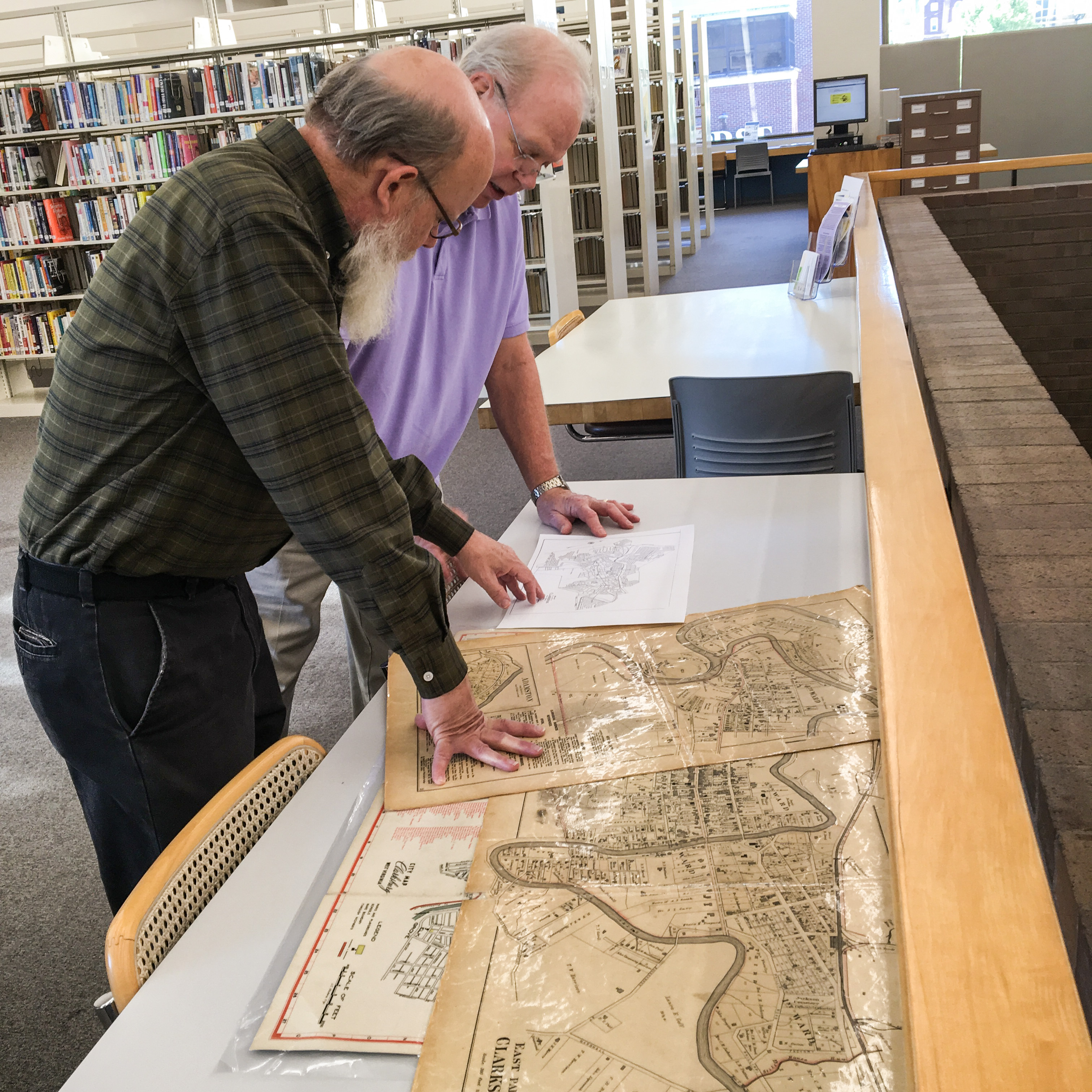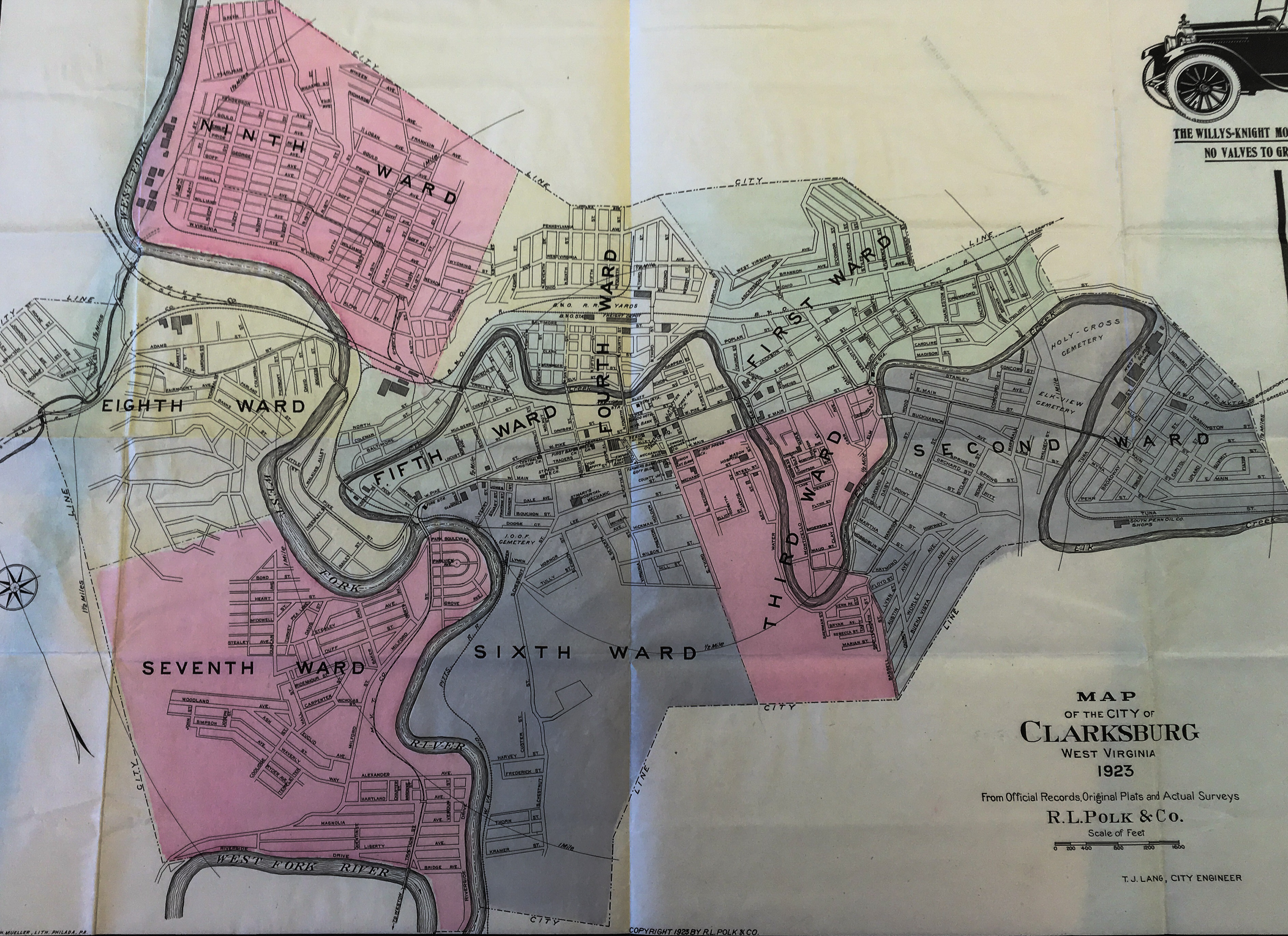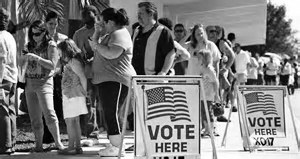Part IV Democracy in Black & White
Let Us Decide
(articles.sun-sentinnel.com)
This is Part IV of a four-part series outlining my local political thoughts for helping our city government become more responsive to the people and outlining my vision for revitalization. First and foremost: My goal from the very beginning has been to encourage people to think and perhaps move forward with some much-needed changes. I am not attacking one or more individuals. I am attacking an oligarchical system - one designed to keep power and influence in the hands of a few.
Last week and the week before, I discussed the importance of preparing our city for the opening of a grand cultural arts center. Today, I want to talk, once again, about three changes I feel are necessary to keep our city moving forward. Old themes, given much thought, a lot of research, and with a few new twists.
The first is direct election of the mayor. As it currently stands, Clarksburg’s mayor is selected from their own rank-and-file - by City Council. Only a majority vote is necessary, which means, as few as four members could pick our mayor. My critics say, “The mayor is just a figure head with no real power.” This is categorically incorrect! Study and observe. Our mayor has real power and influence. Make no mistake.
Once a new council is elected, there is considerable ‘deal making’ among the one or ones wanting to be mayor. They no longer follow the tradition of ‘one term…pass the gavel to the vice mayor.’ The people should have the opportunity to choose who represents them throughout the city, county, state and on occasion, throughout the nation. We should no longer support a, “You back me, and I will make you vice mayor and/or appoint you to your favorite commission.” With my proposal, the mayor would be elected at-large, campaign throughout the city, and would be the only member of council elected at-large.
Second, we should adopt term limits for all elected city positions, especially City Council. We already have term limits for our County Sheriff. Why was this done? Very simple…to avoid the potential abuse of power and succumbing to harmful outside influences.
Once again, my critics will say, “Why force a good person to leave office? Let the voters decide.” On the surface, this seems sound. However, why do we have term limits in general? Term limits prevent the emergence of career politicians who often spend a growing amount of time cultivating their own power and influence. In addition, career politicians are much more susceptible to the misguided influence of interest groups and powerful individuals. We deserve officials who are more concerned about the next generation (statesmen) and not about the next election (politicians).
Term limits also empower new leaders and provide new ideas. Limits also reduce the intoxicating effect of power. It can corrupt even the most scrupled individual, given enough exposure over time. And lastly, term limits also favor action over complacency, especially if an official faces a tough controversial decision, yet is fixated over being re-elected.
Finally, my proposal would not permanently exclude one who has served out his/her term. I propose a two-term limit. Sit out a term, and eligibility returns. Incidentally, a mayoral term would count as a council term.
Thirdly, I am proposing we return to a ward system of electing members to City Council. Prior to 1950, Clarksburg West Virginia had a ward system – a system where the population is equally divided, where people in each ward (division) know one another, and personally perform the functions of government for one another.
In this photo, David Houchin, Special Collections Librarian at the Clarksburg-Harrison Library provided many maps and explained how Clarksburg was divided, prior to 1955.
 Here is a photograph of the Clarksburg Ward System in 1923. There were 9 wards.
Here is a photograph of the Clarksburg Ward System in 1923. There were 9 wards.

Although Clarksburg has grown considerably in square miles, the population is considerably less than 1923 (35,115) . Therefore, I am proposing we adopt a 6-Ward system due to our current population (16,242), with the mayor elected at-large. This way, the size of Council would not change.
One might wonder why Clarksburg went away from a ward system. Based on accounts I read, apparently there was a small group of influential individuals who were concerned about ‘alleged’ corruption within a few wards. True, one of the main criticisms of a ward system is the emergence of powerful ward bosses, whose focus is power and single-ward promotion. Another criticism is that a ward councilperson is only concerned about his/her ward. Both are valid criticisms, yet they are peppered with flaws.
The advantages of wards far outweigh drawbacks. For the candidate, the cost of campaigning is greatly reduced. You campaign only in your ward vs the entire city. A ward councilperson is more connected to his/her ward and directly accountable to their ward, as they are the only voters who get to vote for them. Ask yourself, “When something goes wrong or you have a concern in your neighborhood, don’t you want to be able to contact a single person who is YOUR representative and understands first-hand your concerns?”
In addition, with wards, you would certainly have a more diverse council with every socioeconomic neighborhood given equal representation. Lastly, although there have been mixed studies, consensus is that wards usually increase voter turnout. With a local voter turnout hovering around 12-15%, with a recent low of 8.6%, any boost would be welcomed.
Something to think about: Right now, if Clarksburg, West Virginia was currently divided into the same nine wards we had prior to 1955, four councilpersons would be in one section, two in a second, and the 7th council person would be excluded entirely because his neighborhood was not included within the city limits…in 1955.
I have visited many of the neighborhoods in my hometown and talked with residents. When I ask, “Who is your councilperson?” Their reaction is generally the same, “Blank stares.” I know who my councilpersons are…four of them are my neighbors. Many, if not all the seated councilpersons say, “I represent all the citizens.” Something I would expect them to say. With a ward system, your councilperson IS your neighbor. Someone who understands your concerns and problems because they also live them, right alongside you.
Recently, Council discussed these three proposals in a workshop, with only a couple going public with their views. However, even those commenting publicly did not address all three workshop proposals. I would like to see all three brought before the public in a series of ‘objective’ meetings, meetings located within my six-ward proposal. In the end, these proposals should be attached as referendums in the next local election. This way, we avoid a costly special election. Attach…and there is no added cost, something opponents often use as a scare tactic. “Let us decide!”
Additionally: If a councilperson votes ‘Yes’ on any of these, it simply means they have voted to allow the people to decide. It is not a direct reflection of their personal viewpoint. However, a ‘No’ vote means they have decided to remove the vote from the people. This presents an interesting perception, especially when a seated councilperson votes “No” on term limits and the ward system and a mayor votes ‘No’ on direct election.
No doubt I have jeopardized some relationships and friendships with my recent public stances. On the other hand, I have received much support from friends and strangers. But make no mistake, I am not directing my comments toward any individual or individuals. My comments have been directed toward a system that has become what it was designed to replace – an oligarchical form of leadership. Rule by a few is not representative of the people, nor does it reflect our diversity.
There you have it. My three proposals. Direct election of the mayor. Term limits. And a return to fair and equal representation – the ward system. I look forward to reading public reactions and hearing from my City Council. Public and Council comments are always welcomed.
For the time being, I will wait and then evaluate.
I would like to thank David Houchin, Special Collections Librarian for the Clarksburg-Harrison Public Library and Crystal Wimer, Executive Director of the Harrison County Historical Society for their assistance with research.
Leaving you once again with the words of Dr. Martin Luther King, “Our lives begin to end the day we become silent about things that matter."
This is Michael saying, “Until Next time.”
